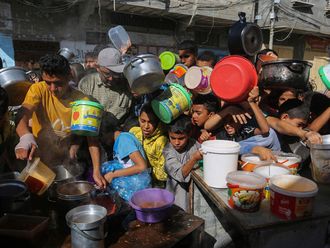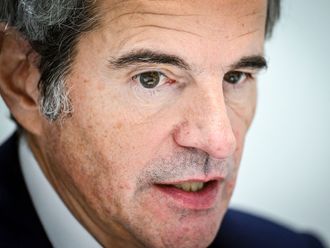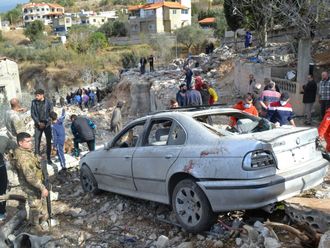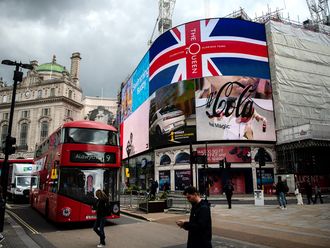Vienna: Iran justifies its atomic activity with plans to set up a network of nuclear power plants, but western analysts say a lack of indigenous resources and growing international isolation make those ambitions look far-fetched.
The issue of whether Iran can build as many as 20 reactors during the next two decades goes to the heart of an eight-year diplomatic row over the Islamic state's nuclear programme.
Iran insists it needs to enrich uranium — material which can also be used to make weapons if refined much further — to fuel future power stations designed to generate electricity and enable the country to export more of its gas and oil riches.
It says its first such facility, a Russian-built 1,000 megawatt (MW) reactor near the Gulf coast city of Bushehr, will start supplying energy in early 2011 after years of delays.
Suspicion
But the United States and its allies believe Iran's uranium enrichment is part of a covert weapons drive and have imposed tough sanctions on Tehran to force it to halt the work.
"It is simply unrealistic to build so many nuclear reactors in such a short time," said Oliver Thraenert, senior fellow at the German Institute for International and Security Affairs.
"The Iranians don't have the experience, they don't have the infrastructure and it is possible they don't have the money due to the sanctions," he said.
Ali Akbar Salehi, the head of Iran's Atomic Energy Organisation, told the UN nuclear watchdog's annual assembly in Vienna last month about a parliament decision to construct nuclear power plants generating a total of 20,000 MW by 2030.
He urged "all potential suppliers to seize this opportunity to participate in the construction of the new power plants".
IAEA, Germany see ‘signals' Iran ready to talk: Berlin
Berlin: The International Atomic Energy Agency and Germany have detected signs Iran is ready to talk about its nuclear programme, Germany's foreign minister said on Friday after talks with the head of the UN watchdog.
"We have not been able so far to detect any substantial changes in the Iranian government's behaviour. However we are detecting new signals of a readiness to talk," Guido Westerwelle told reporters after talks with IAEA chief Yukiya Amano in Berlin.
"Whether this readiness to talk leads to concrete talks that are hopefully constructive, time will tell. But it seems that these signals are being transmitted. We have both detected this in our respective areas."
The UN Security Council adopted a fourth set of sanctions against Iran on June 9 over Tehran's failure to heed repeated ultimatums to freeze uranium enrichment.
The West led by Washington suspects that Iran is seeking to make atomic weapons under the guise of a civilian nuclear programme, a charge denied by Tehran.
Germany is one of six countries negotiating with Iran over its nuclear programme, along with the five permanent members of the UN Security Council, the United States, China, Russia, Britain and France.
- AFP












